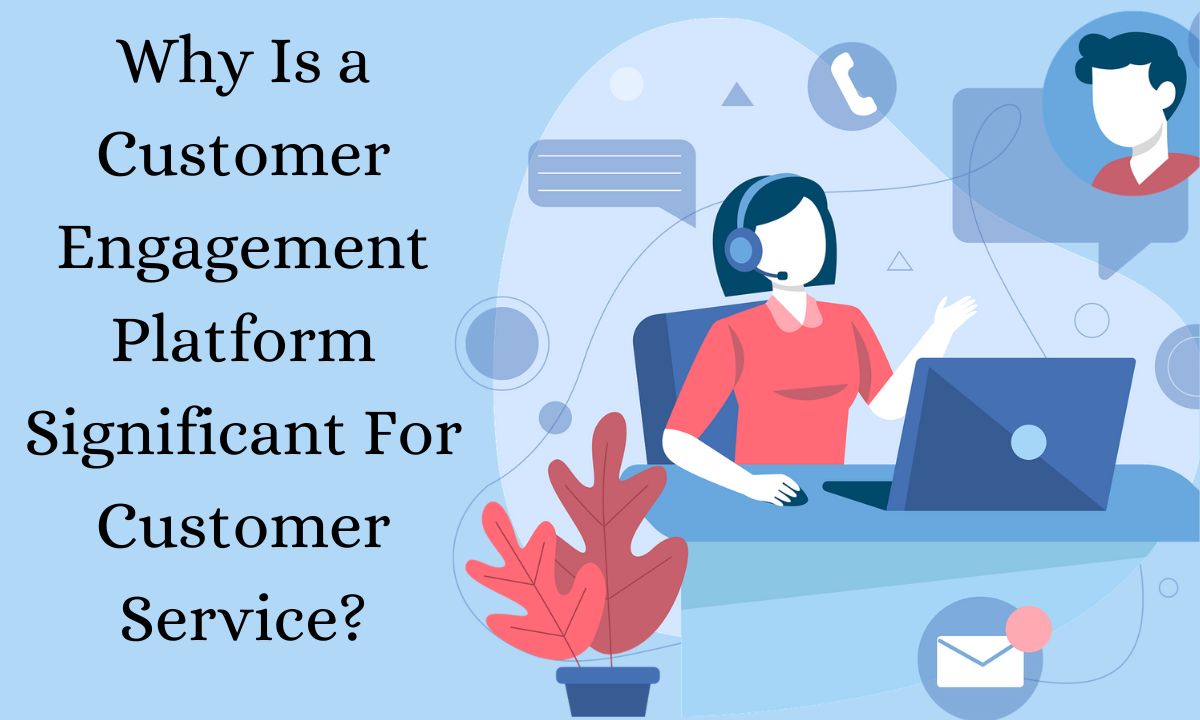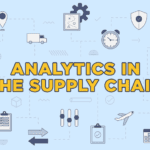
It becomes frustrating for customers when they can’t get quick, personalized assistance on their preferred channel, whether it’s chat, SMS, or the phone. Businesses must address this problem at the highest priority. One of the ways to resolve this is to implement a customer engagement platform for service to ensure that customers always have a consistent service experience.
What is a customer engagement platform (CEP)?
A customer engagement platform provides tools for communicating with customers. They assist you in developing tailored experiences, including self-service options, that scale as your organization expands. These tools in CEPs may include shared inboxes, live chat, collaborative knowledge base, multi-channel case routing, feedback management, analytics, and AI, among others.
What is the difference between a Customer Relationship Management (CRM) and a Customer Engagement Platform (CEP)?
First, let us understand the customer relationship management (CRM) platform. A CRM records all of your interactions with customers, leads, and prospects across multiple channels.
For it to be an effective customer interaction platform, a CRM requires customer engagement tools. These include live chat, bots, phone support, and multi-channel case routing. This last component is crucial. Multi-channel case routing enables multichannel engagement. This implies you can communicate with customers via their preferred channel. Your team can access each customer’s history regardless of which channel is used. When you combine AI and data, you get a customer engagement platform that transforms how you deliver the customer experience.
What are the advantages of adopting a CRM for omnichannel engagement?
Personalization
With omnichannel engagement, your staff gets the context they need to provide tailored support regardless of how a customer contacts your organization. The agent (or your bot if you use one) has complete access to a customer’s data. This includes purchase history and past interactions. The agent can view within the CRM console and from there, AI can provide personalized responses to resolve the customer’s issue.
Seamless support channels
Consumers want to interact via the channel of their preference. If you use a CRM that offers omnichannel engagement, they can reach you via multiple channels such as SMS, WhatsApp, app, and website. It is also possible for a customer to initiate a chat session with support and then easily switch between phone and video calls.
Effective case management and resolution
Your teams can resolve issues faster and more effectively with omnichannel engagement. Customers are spared from having to repeat themselves.
How enhanced customer experience is made possible with AI and connected data
Developing a good rapport with your customers starts with a CRM. It facilitates service streamlining by giving agents access to a single source of truth. However, AI has changed the service industry. The really intriguing part comes when you add in AI and connected data. Here’s how an AI-powered CRM enables omnichannel engagement:
Agent productivity tools
AI can be integrated with your CRM to provide your agents with a strong virtual assistant that can help them work more productively. AI can provide suggestions for the agent’s next best course of action during a conversation with a customer, or it can even respond to the consumer. AI is even able to forecast, based on previous interactions, the possibility that a customer will escalate the issue. Agents will then be able to provide these customers with even more personalized assistance.
Real-time data
Every time a customer, lead, or prospect engages with your brand data is generated. Gaining an understanding of this data will help you enhance your service delivery. Access to all of your data is also necessary, whether it is stored in external data lakes or within your CRM system.
Salesforce Data Cloud makes this possible for you. It allows you to see your customers from every angle inside Salesforce by bringing all of your disparate data together. Agents and supervisors can view customer data from your CRM and external systems if you have a CRM with AI along with connected data and omnichannel interaction. Teams can customize their interactions with each customer by having access to real-time data and insights about them and their engagements with your products and brand.
Insights for continuous improvement
The value of data is determined by what you do with it. Using AI, Service Cloud is able to derive meaningful insights from all of your data. This provides you with the data you need to make decisions that improve the performance of the support teams.
To find out why people contact you, for instance, you could analyze customer chats. Some will barely affect your overall goals; for example, a customer changing their account password. Others, like account cancellation, will have a major impact. You can create self-service and agent service strategies to help you meet your objectives for each reason customers contact support.
5 Ways a Customer Engagement Platform Can Drive Audience Engagement
Here are a few ways by which you can engage with your customers using your CRM, or customer engagement platform.
Encourage customers to self-serve
According to research, 61% of customers prefer self-service for simple issues. So, create a self-service portal for them. Customers can perform routine operations, such as changing their billing address, or look for assistance and receive AI-powered solutions to resolve their problems, all without speaking to a service rep. Use chatbots in your self-service process so that customers can get even more help without lining up in the queue to speak with an agent.
Give customers the power to choose
Currently, how do customers get in touch with you—through chat, SMS, or email? Phone? In reality, they most likely want choices. According to research, 71% of customers have varying channel preferences based on context. Examine how your customers are currently using your current channels to gain a deeper understanding of their preferences. Which channels could you establish to address the gaps that customers encounter while trying to resolve problems?
Empower reps with customer data and AI.
While we have covered the benefits of AI for service reps, it’s crucial to remember, though, that providing them with complete customer data via the use of AI and connected data benefits your customers as well. Everyone benefits when agents have what they need at their fingertips and can focus on providing efficient, and tailored interactions to customers and everyone wins.
Consistently acquire feedback from customers
Customer feedback is common, but how can you ensure that these insights are kept up to date by routinely reviewing them? Do you have the appropriate AI-powered analytics to interpret this massive amount of contextual data without having to go through each survey one by one? With the help of a CRM, you can acquire customer feedback and save it in one location from which you can easily examine, evaluate, and enhance customer satisfaction across all digital service channels. This way, before your NPS or CSAT ratings suffer, you can spot reoccurring problems and take proactive measures to fix them.
Establish a community to foster relationships with your brand.
The most loyal customers are excellent brand ambassadors who can encourage other people to use your goods or services. Think about setting up a community for your customers so they can support one another and continue to be interested in your brand. To make it simple for customers to communicate, exchange information, and find answers to problems together, you can even provide a customized feed.
How to identify the best CRM for customer engagement
Define your goals.
What goals do you want to achieve with your CEP? Boost the productivity of agents? Establishing goals and prioritizing them will help get a clear comparison of the possibilities.
Evaluate features.
Not every CRM is a CEP. Therefore, when looking for possible CRM solutions, focus only on those that provide capabilities for customer engagement. Compare the platform’s features to your goals to assess how well it is aligned with them.
Consider scalability.
In addition to choosing a platform that meets your immediate needs, think about how you’ll be able to use it as your company grows. You want to reduce the frequency of software updates because they are disruptive and require a learning curve for your team.
Prioritize dependability.
This is closely related to scalability. Choose a vendor who can stay up to date with the rapid advancements in AI technology to avoid being left behind. You want your chosen partner to stick around for the long run.
Go for a user-friendly interface.
Simply said, you want agents to find your tool easy to use. Although there will inevitably be a learning curve, try to find an interface that is as easy and intuitive to use.
Look for integration capabilities.
As a platform for customer engagement, make sure your CRM can interface with any Salesforce AI services technology you choose to continue using. Use APIs and custom integrations to connect to third-party channels.
Understand ongoing support.
Make sure the platform you choose provides assistance when needed, not just throughout the onboarding process but also as you use it. In the customer service industry, as we all know, timely assistance is crucial.
One crucial piece of technology that helps close the gap between what customers expect and what your support team can provide is a customer engagement platform. Customers will have seamless experiences with a CRM that incorporates AI, data, and omnichannel engagement, while agents will be empowered to work quickly and easily. Connect with a certified Salesforce development partner today and take the first step to becoming a high-performing service organization by leveraging data and AI. Our certified Salesforce consultants would be happy to guide you.








